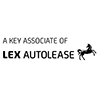It is difficult to escape negative stories about the car industry at present, from factories closing, to huge drops in UK sales figures in April. What is more, what was once the star of the UK car manufacturers, Jaguar Land Rover, is currently rumoured to be seeking up to £2 billion in support from the UK government.
So, what next for an industry already buffeted by Brexit, emerging technologies, and changing consumer needs?
Firstly, it is not all bad. The media relishes an opportunity to bash the car industry, and the headline grabbing news stories around a 97% “plunge” in car sales in April 2020, were somewhat misleading. With dealerships forced to close as were all other non-essential retail outlets, this was an inevitable contraction, rather than a representation of a 97% fall in demand. As things are now opening up, expect to see those numbers climb rapidly, albeit far from the levels of 2019, with the restrictions on both stock and manufacturing capacity brought about by social distancing.
The industry’s failure to properly embrace new methods of sales channels, particularly online, have contributed to its problems through lockdown. Tesla’s commitment to an online service delivery meant the company was able to continue delivering vehicles throughout lockdown, whilst the majority of car dealerships shut down and mass-furloughed their staff. Expect manufacturers to continue to look beyond the traditional car dealership retail model in the coming years, a theme we will explore in later weeks.
The pessimism around the industry fails to note that electric carmaker, Tesla, has seen its share price rise over 100% in the first 6 months of 2020, to a market capitalization of $162 billion.
It is, then, with smaller, challenger organisations that the future of the car industry rests, whether that be manufacturers, or sales channel providers.
Investors are right to be pessimistic about the future of the traditional, big manufacturers. As the Economist noted recently, those manufacturers are sitting on $1.3 trn-worth of legacy investments in factories that build a technology that will likely become obsolete in the next decade, the internal combustion engine.
There is also a large exposure within the carmakers’ finance arms, with residual values increasingly volatile on petrol and diesel cars, and defaults more likely during the recession. The big opportunity rests with the emerging technologies, and particularly electric cars. Whilst electric and hybrid models actually represent a loss-making division of the major manufacturers, demand for them is growing exponentially (144% rise in sales in 2019)
With the COVID-19 pandemic forcing people away from public transport and ride-share systems, expect to see further government support for clean air technologies, to avoid a spike in air pollution linked to greater car usage.
In the UK, there has been a tectonic shift in the tax regime around company cars that launched in April 2020, meaning employers and employees have the ability to save significant amounts in tax, as well as running costs, through adopting electric cars as part of their company car policy (more on this here).
What the car industry must do is continue to innovate, and look beyond the traditional methods of ownership, and sales channels, in the same way it is increasingly looking beyond the traditional technology of internal combustion engines. This means further engagement with independent suppliers, particularly those who embrace an end-to-end online customer journey as their primary method of dealing with customers.
What is increasingly clear is the need for unbiased, expert advice, particularly at the premium end of the market, where a misstep can have major financial implications.
Over the last 10 years across the UK, Pike & Bambridge has supported over 5,000 professionals through the often challenging process of getting the new car they really want. Our clients trust us to deploy our accumulated, proven expertise and guide them through the many, sometimes confusing, choices they face in specifying, funding and acquiring their new car. Doing so in a very personalised way, we are able to deliver what they really want while also freeing up their time, removing unnecessary stress and frequently saving them some money too.








